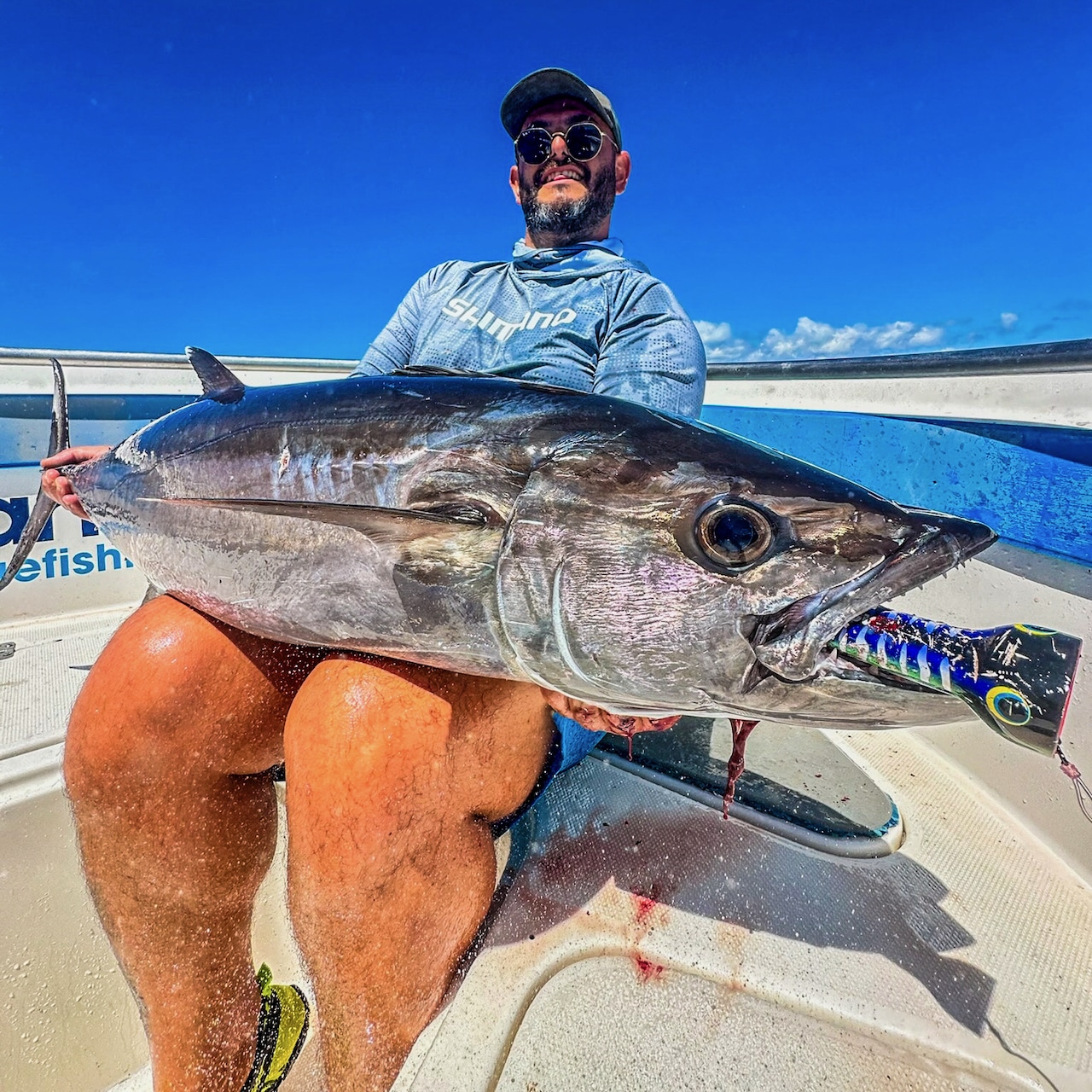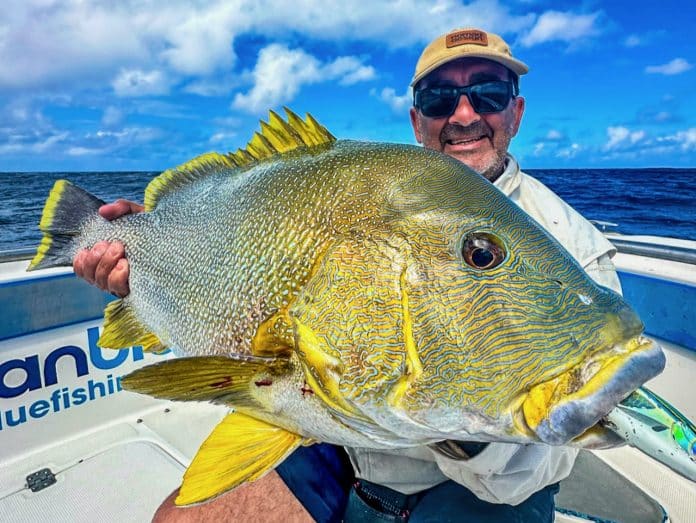Embarking on your first overseas fishing adventure can be both exhilarating and daunting. This comprehensive guide is designed to equip first-time anglers with everything they need to know, from selecting the right gear to mastering essential fishing techniques. Whether you’re heading to the pristine waters of Vanuatu, Malaysia, or the Maldives, these tips will ensure your fishing trip is a memorable success. Fishing trips are not just about catching fish; they’re about the experience, the thrill of the chase, and the joy of being out on the water. With the right preparation and knowledge, your first fishing adventure can be the start of a lifelong passion.
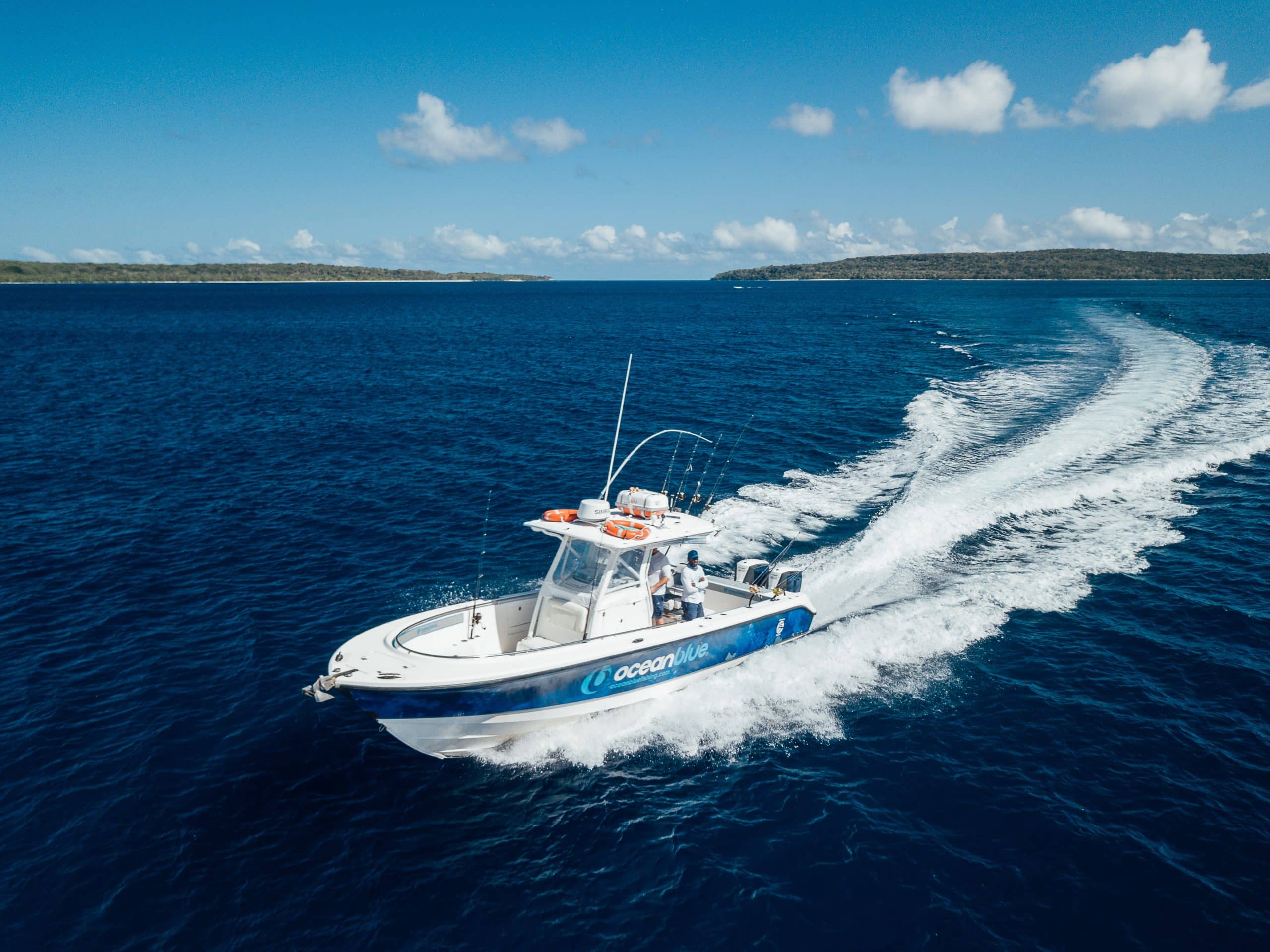
Gear Selection for First-Time Anglers
Choosing the right gear is crucial for a successful fishing trip. For beginners, it’s essential to start with the basics and gradually build up your collection as you gain experience. Consider investing in a quality rod and reel, suitable for the type of fish you’re targeting. For instance, if you’re planning to fish for giant trevally, you’ll need a sturdy rod and a reel with a high line capacity. Beginners should also consider the type of water they’ll be fishing in. Saltwater gear differs from freshwater gear in terms of corrosion resistance and durability.
When selecting your gear, pay attention to the rod’s action and power. Action refers to how much the rod bends when pressure is applied, while power refers to the rod’s strength. For first-time anglers, a medium action, medium power rod is a versatile choice that can handle a variety of fish species. Additionally, don’t overlook the importance of quality fishing line, hooks, and lures, as these components play a vital role in your overall fishing experience. It’s also wise to bring a tackle box with a variety of lures to adapt to different fishing conditions.
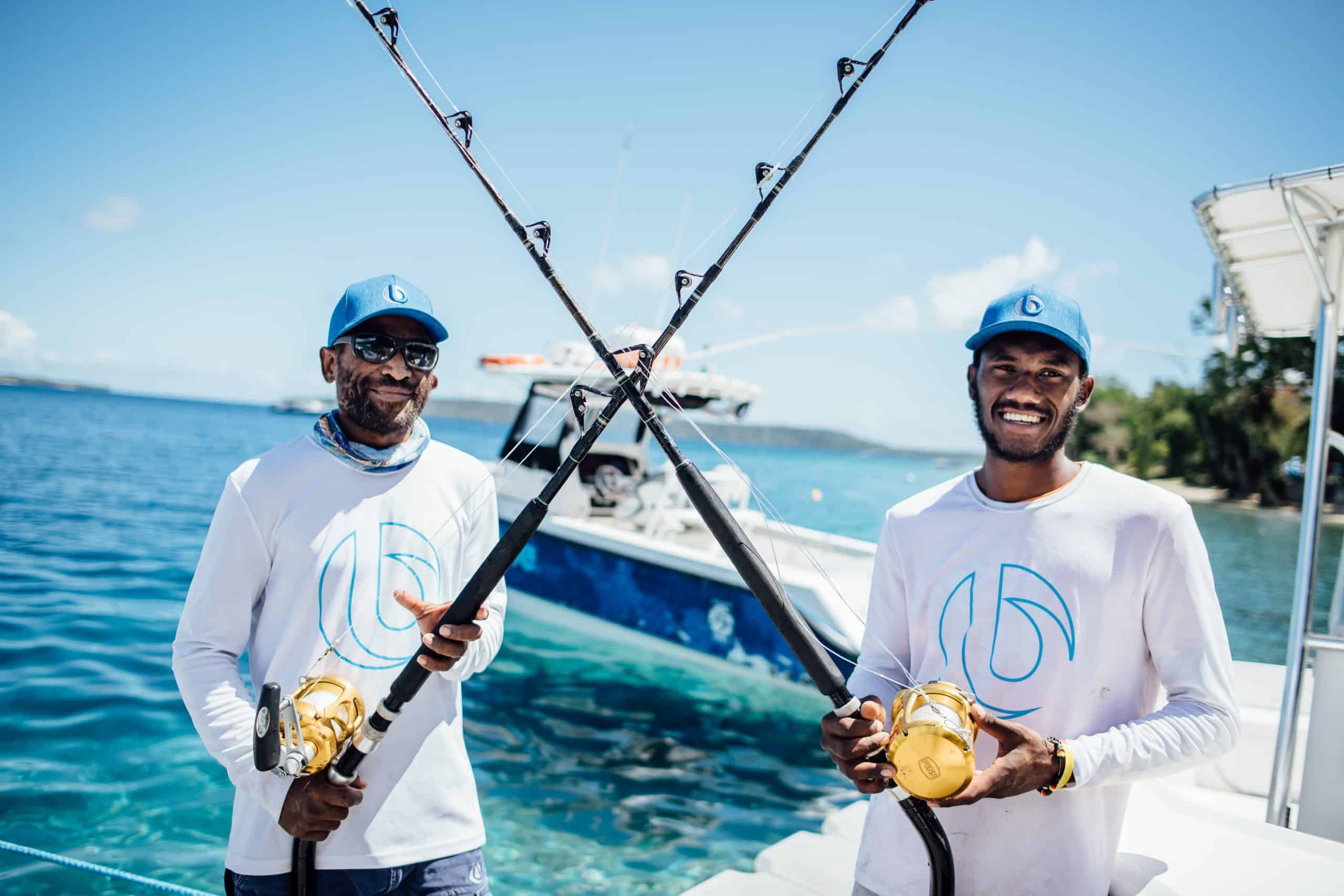
Fishing Techniques to Master
Learning a few basic fishing techniques will greatly enhance your experience. Techniques such as casting, trolling, and jigging are fundamental skills that every angler should master. Practice these techniques before your trip to ensure you’re ready for action.
Casting
Casting is a fundamental technique in fishing, involving the skillful throw and retrieval of a lure into the water. This method is particularly crucial when targeting aggressive predators like giant trevally, red bass, and coral trout, especially in the realm of topwater fishing. Topwater fishing is an exhilarating style where anglers aim to provoke explosive strikes from fish lurking just below the surface. The technique requires precision and timing, as the lure must mimic the erratic movements of prey, enticing these fierce hunters to break the water’s surface with a dramatic splash. For species like giant trevally, known for their sheer power and speed, casting allows anglers to cover a vast area, increasing the chances of a thrilling encounter. Meanwhile, red bass and coral trout, with their vibrant colors and cunning nature, demand a more strategic approach, where the lure’s presentation can make all the difference. Mastering casting in topwater fishing not only enhances the angler’s experience but also opens the door to unforgettable moments with some of the ocean’s most exciting game fish.
Trolling
Trolling is a dynamic fishing technique where lures or bait are drawn through the water from a moving boat, making it an essential strategy for targeting offshore species like marlin, sailfish, and tuna. This method allows anglers to cover extensive areas of open water, increasing the likelihood of encountering these powerful predators. Trolling is particularly effective offshore, where these fish roam. For marlin, known for their impressive size and acrobatic displays, trolling can provoke dramatic strikes as the lure mimics the natural prey moving through their territory. Sailfish, with their speed and agility, are often lured by the consistent motion and flash of the bait. Similarly, tuna, prized for their strength and stamina, require precise speed and lure selection to trigger their predatory instincts.
With your guide or captain, who is generally an expert in the art of trolling, you’ll have the advantage of their seasoned knowledge and skill. It’s important to determine early on in the charter whether you’re comfortable striking the fish on a hook-up yourself or if you’d prefer the guide to hook the fish after the strike and hand you the rod. This technique is a dance of patience and skill, offering anglers the chance to engage with some of the ocean’s most sought-after game fish, while ensuring that your preferences are respected for the ultimate fishing adventure.
Researching the best time to travel to your fishing destination is crucial, especially when considering the specific species you wish to target. Different fish are influenced by seasonal factors such as water temperature, migration patterns, and spawning cycles. By understanding these factors, you can determine the optimal time to plan your trip for the best fishing opportunities. Discussing the seasons with your guide can provide valuable insights into when your target species are most active, ensuring you make the most of your fishing adventure. Tailoring your travel plans to align with the peak activity periods of your target species will ensure a more rewarding and exciting fishing experience.
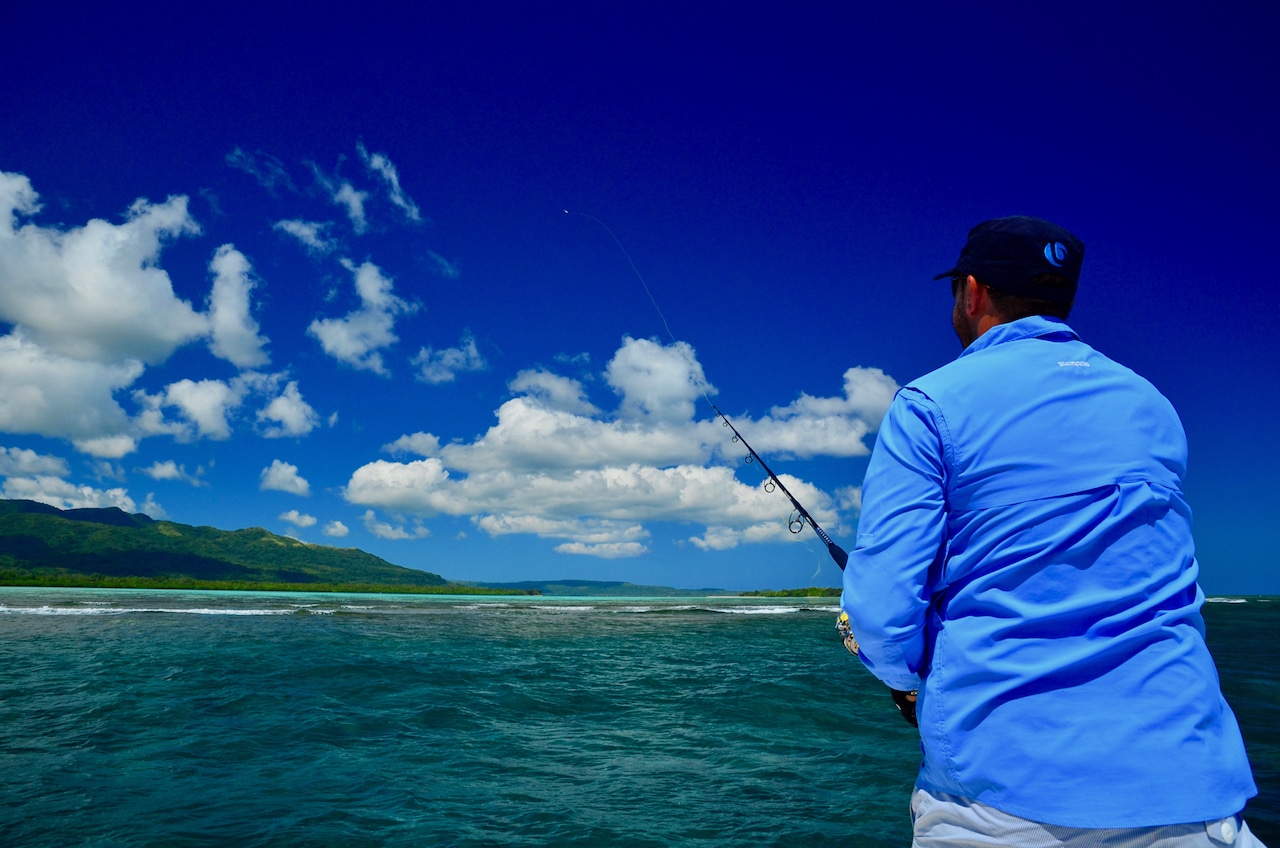
An international fishing adventure is not just about landing that trophy fish; it’s about immersing yourself in the journey, embracing the local culture, and creating unforgettable memories.
Brent Malessas – Ocean Blue Concierge
Choosing the Right Fishing Destination
Selecting the perfect destination is key to a successful fishing adventure. Research the best fishing spots based on the species you wish to target. Vanuatu, Malaysia, and the Maldives offer diverse fishing experiences, each with unique challenges and rewards. Vanuatu is renowned for its blue water sport fishing, where you can target species like marlin and giant trevally. Malaysia offers the Rompin Sailfish Adventure, perfect for those looking to catch sailfish. The Maldives is famous for its liveaboard sport fishing, where you can enjoy the luxury of a yacht while fishing for a variety of species.
When choosing a destination, consider the time of year. Different fish species are more active during certain seasons. For example, the best time to fish for sailfish in Malaysia is between July and October. Additionally, consider the local regulations and permits required for fishing in each location. Understanding the cultural and environmental aspects of your destination can also enrich your fishing experience. Consider the amenities and accommodations available at each location, as these can greatly enhance your overall trip.
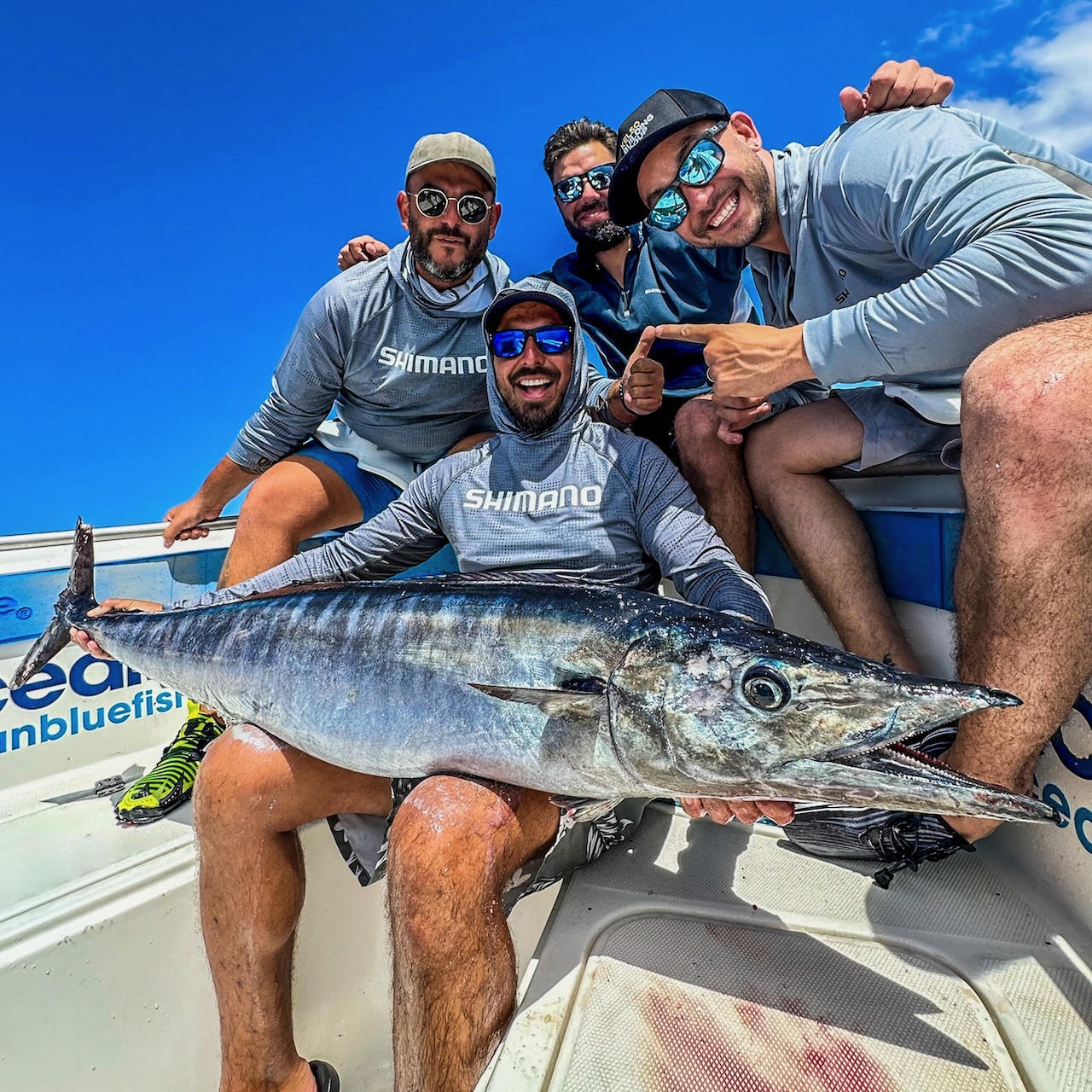
Preparing for Your Fishing Trip
Preparation is everything when it comes to fishing trips. Make sure to pack all necessary gear, clothing, and safety equipment. Familiarise yourself with local regulations and obtain any required permits beforehand. Packing the right clothing is essential, as weather conditions can change quickly. Lightweight, breathable clothing is ideal for hot climates, while waterproof jackets are a must for rainy conditions. Don’t forget essentials like sunscreen, a hat, and polarized sunglasses to protect against the sun’s glare.
Safety should be a top priority when planning your fishing adventure. The charter company should be equipped with essential safety gear, including a first aid kit, life jackets, and any necessary medications. If you’re prone to seasickness, it’s wise to bring along motion sickness tablets or wristbands. Informing someone of your itinerary and expected return time adds an extra layer of safety. Additionally, familiarising yourself with basic first aid procedures and emergency protocols can be beneficial. Preparing mentally for the trip by setting realistic expectations and being open to learning can further enhance your experience.
Understanding Local Culture and Etiquette
When traveling overseas for a fishing adventure, it’s important to respect local cultures and customs. Each destination has its unique traditions and practices, and being aware of these can enhance your experience. In many fishing communities, respect for the ocean and its creatures is paramount.
Engage with local guides and anglers to learn about their fishing techniques and traditions. They can provide valuable insights and tips that you won’t find in guidebooks. Showing respect and appreciation for their knowledge and expertise will make your trip more enjoyable and rewarding. Additionally, participating in community projects can leave a positive impact and create lasting memories. Building relationships with local communities can also lead to unique opportunities and experiences that enrich your adventure.
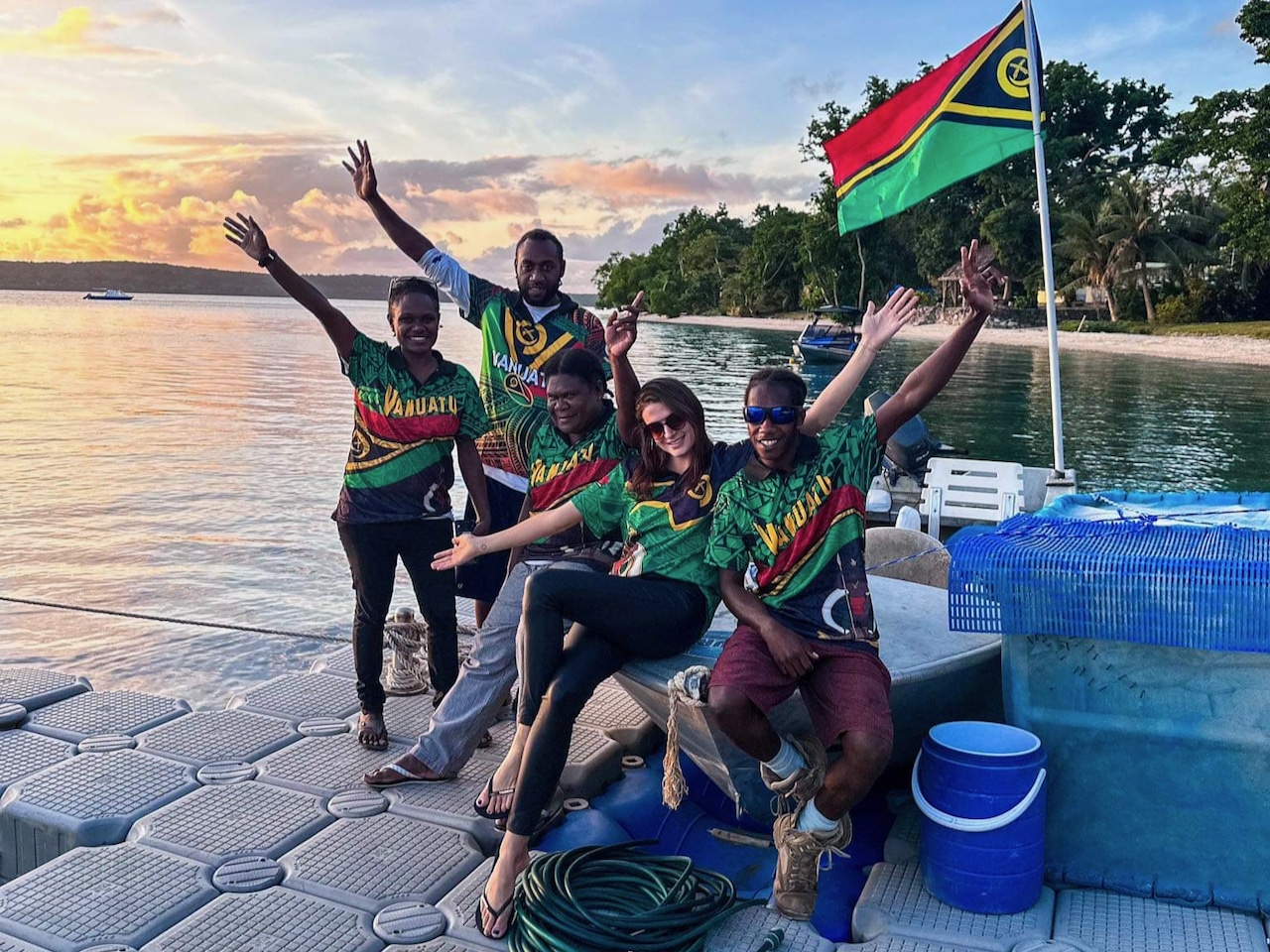
Fishing Ethics and Conservation
As anglers, it’s our responsibility to protect the environment and ensure that future generations can enjoy the thrill of fishing. Adhering to sustainable fishing practices is crucial. This includes respecting catch limits, avoiding overfishing, and using eco-friendly gear. Many fishing destinations have specific regulations in place to protect endangered species and habitats, so it’s important to familiarise yourself with these rules before your trip.
Conservation efforts, such as participating in beach clean-ups or supporting local marine conservation organisations, can make a significant difference. By practicing ethical fishing and contributing to conservation efforts, you can help preserve the beauty and biodiversity of our oceans. Educating yourself about the local ecosystem and participating in conservation initiatives can also deepen your connection to the environment and enhance your fishing experience.
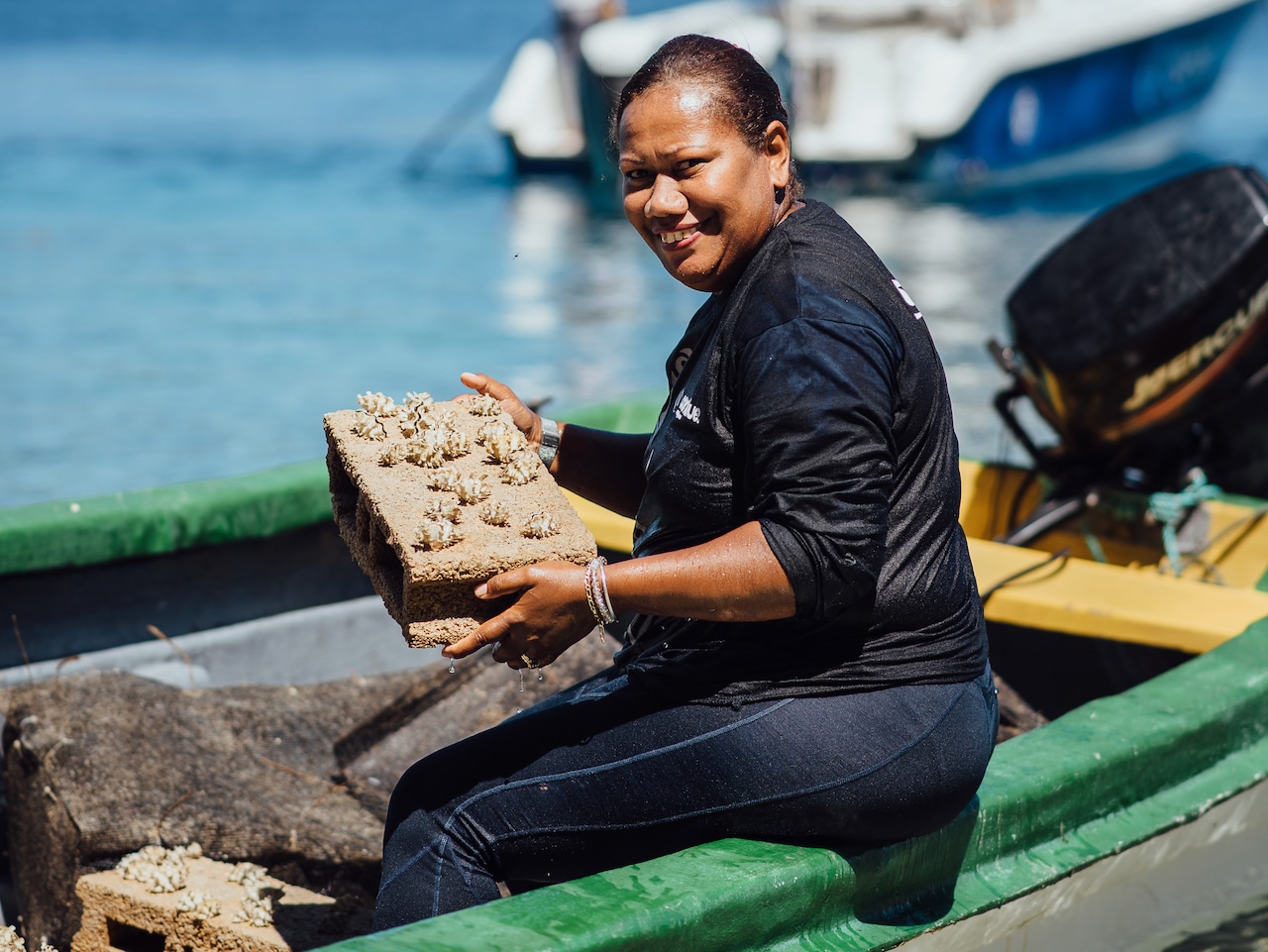
Exploring Local Cuisine and Hospitality
One of the joys of traveling for a fishing adventure is experiencing the local cuisine and hospitality. Each fishing destination offers unique culinary delights, often featuring fresh seafood caught locally. Whether you’re dining at a beachside shack in Vanuatu or a luxury resort in the Maldives, the flavors of the sea are sure to tantalize your taste buds.
Engaging with local communities and trying traditional dishes can enhance your travel experience. Many fishing lodges and resorts offer cooking classes where you can learn to prepare local dishes, adding a delicious dimension to your adventure. Exploring local markets and restaurants can also provide insights into the culture and lifestyle of your destination, making your trip more enriching and memorable.
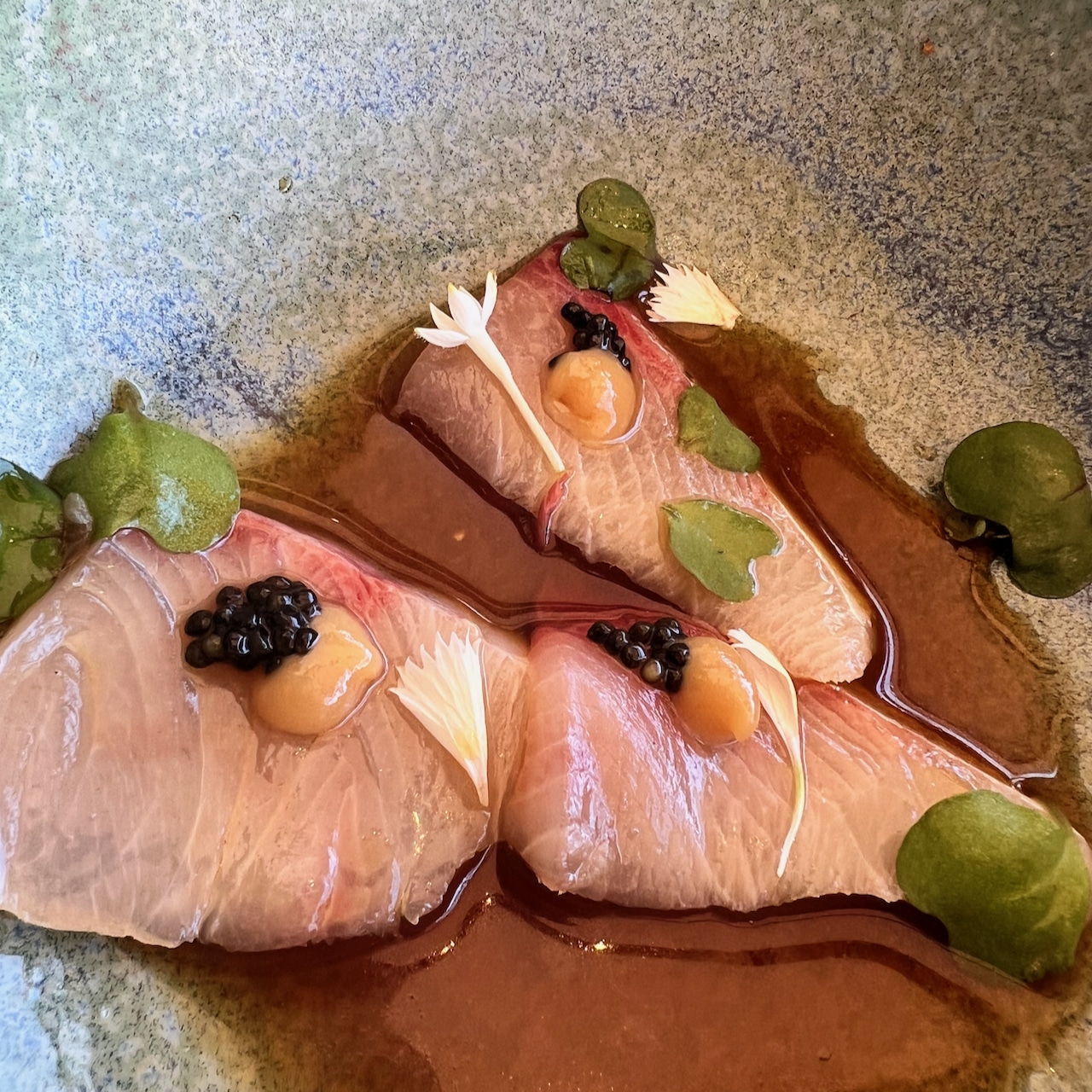
Capturing Your Adventure Through Photography
Documenting your fishing adventure through photography is a great way to preserve memories and share your experiences with others. Whether you’re capturing the thrill of reeling in a big fish or the serene beauty of the ocean, photography allows you to relive your adventure long after the trip is over.
Invest in a good quality camera or smartphone with a reliable waterproof case to protect your equipment. Practice capturing different angles and lighting conditions to enhance your photos. Don’t forget to document the people you meet and the cultural experiences you encounter along the way. Sharing your photos on social media or in a personal blog can inspire others to embark on their own fishing adventures.
